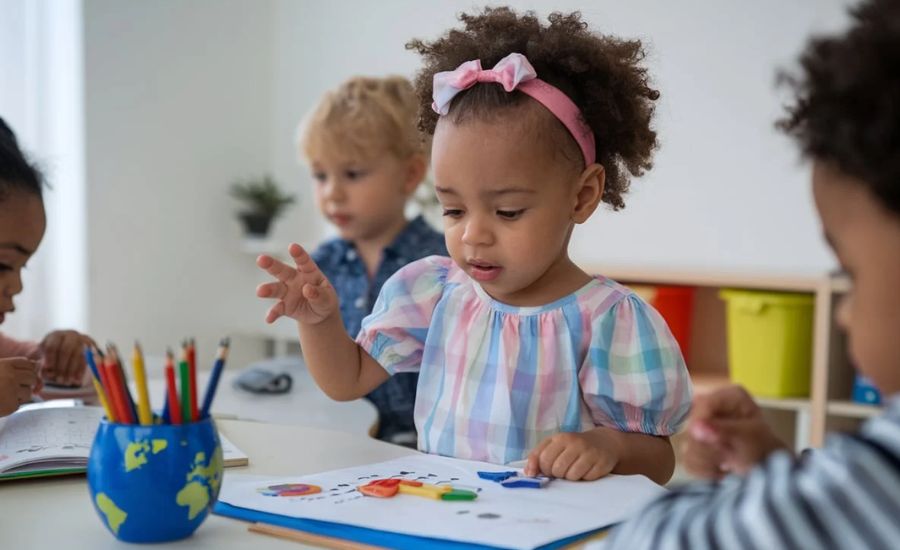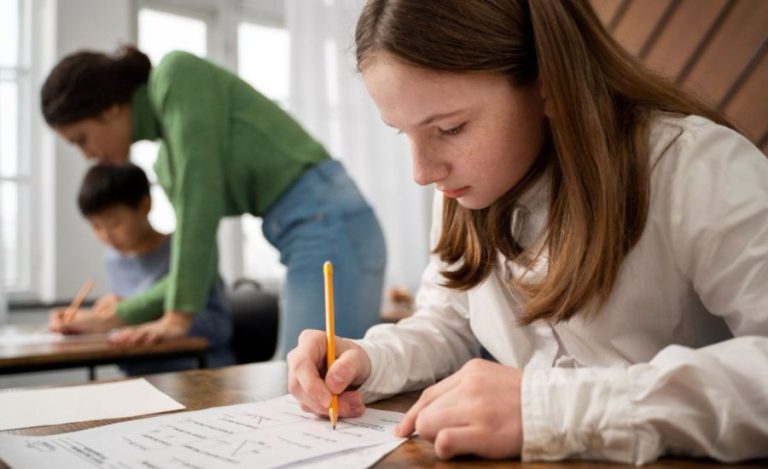Learning the 9 Most Amazing Things 5-Year-Olds Accomplish 2020 Stjcc & More
Introduction to Learning the 9 Most Amazing Things 5-Year-Olds Accomplish 2020 Stjcc
In 2020, despite a challenging global landscape, five-year-olds exhibited extraordinary growth and accomplishments, demonstrating their adaptability, creativity, and resilience. This article dives into the 9 Most Amazing Things Five-Year-Olds Accomplished in 2020, focusing on how children thrive amidst unprecedented circumstances. At this stage, kids are naturally curious, energetic, and eager to explore the world around them. The experiences of five-year-olds during this time show their capacity to learn, grow, and embrace change with remarkable enthusiasm.
Mastering Fundamental Skills
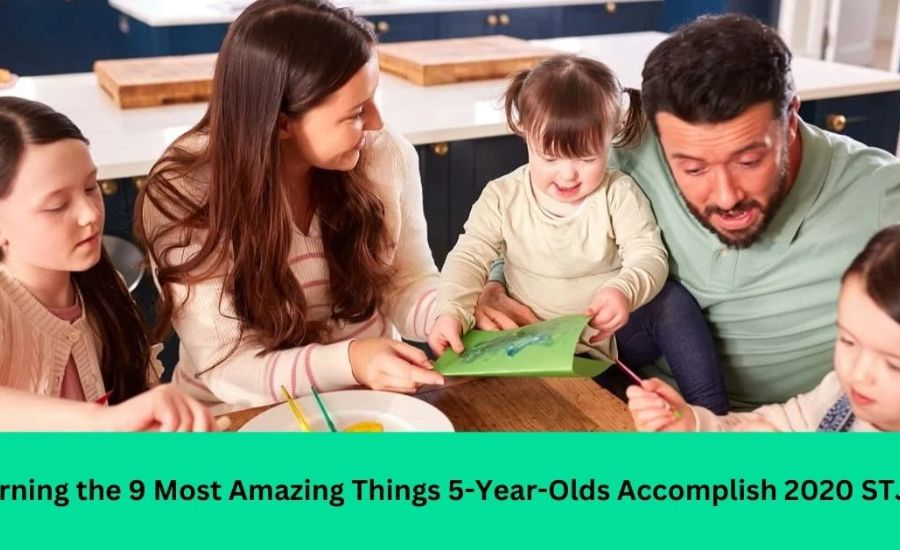
One of the most notable achievements of five-year-olds in 2020 was mastering foundational skills, such as reading, writing, and basic mathematics. Despite the shift to remote learning due to the pandemic, these children continued to develop critical literacy and numeracy skills. Through digital tools and innovative online platforms, educators and parents helped foster an environment that encouraged learning from home. This experience highlights their ability to adapt to new learning methods and use technology to their advantage. The accomplishments in literacy and mathematics underscore the essential role these skills play in their development and future success.
Developing Social Skills
At the age of five, children begin to grasp the importance of social interactions and communication. This period is vital for their emotional and social development. In 2020, despite the challenges posed by social distancing, many children found creative ways to maintain social connections. Whether through virtual playdates or small, socially distanced gatherings, five-year-olds demonstrated a growing understanding of empathy, social cues, and effective communication. These achievements highlight their emotional intelligence and ability to adapt to changing social norms, a critical aspect of their growth during a complex year.
The World Through Their Eyes: Grasping Abstract Concepts
At the age of five, children begin to grasp abstract ideas such as time, understanding concepts like the days of the week and the sequence of daily activities. This marks a cognitive shift from concrete thinking to more abstract reasoning. They start to recognize symbols, patterns, and relationships, which allows them to better navigate their environment. This development fosters a more in-depth understanding of the world, preparing them for future learning experiences where abstract thinking is essential.
A Leap in Thinking: Cognitive Development in Early Childhood
Five-year-olds experience significant growth in their cognitive abilities, with notable improvements in attention span and memory recall. During this period, they begin to apply more advanced problem-solving techniques, and their ability to follow multi-step instructions becomes more refined. This cognitive leap is critical for the development of critical thinking skills, which serve as the foundation for future academic achievements and informed personal decisions. Children at this age are more curious, and their ability to retain information improves, contributing to enhanced learning outcomes.
Navigating Social Waters: Emerging Social Skills
Social development also takes a major step forward at this stage. Five-year-olds typically engage in more group activities, learning to share, take turns, and collaborate with their peers. These interactions are crucial for building emotional intelligence, as children begin to understand social norms and the importance of cooperation. Their playtime often involves group games, which helps them practice negotiation and conflict resolution, laying the groundwork for more complex social interactions later in life.
Puzzles and Problems: Solving Simple Challenges
Problem-solving skills see remarkable growth in five-year-olds, as they become more analytical in their approach to challenges. Whether working on puzzles or attempting to navigate a task, children experiment with different strategies and learn through trial and error. This process not only aids in their academic development but also builds resilience and adaptability, key qualities for handling setbacks and finding solutions. By engaging in these tasks, children enhance their cognitive flexibility, which helps them face future challenges with confidence.
The Developmental Milestones of Five-Year-Olds: Social and Emotional Growth
By age five, children exhibit rapid growth in social and emotional skills, which play a critical role in their ability to navigate increasingly complex social interactions. During this formative period, they learn to better manage their emotions, form deeper friendships, and understand the importance of cooperation—all of which are vital for their future well-being and success.
Understanding and Managing Emotions
At five years old, children are more in tune with their emotions and begin to recognize and verbally express their feelings. For example, they may identify when they are happy, sad, or angry and start using words to communicate these emotions. This emotional awareness helps them manage feelings more effectively, improving their ability to self-regulate. This understanding promotes healthier social interactions, as they learn to control impulses and handle frustration in socially acceptable ways.
Forming Friendships
At this stage, friendships become more meaningful. Five-year-olds enjoy playing and cooperating with peers, which gives them opportunities to learn social norms such as sharing, turn-taking, and empathy. Friendships allow children to practice conflict resolution, helping them understand how to navigate disagreements while maintaining healthy relationships. Learning these social cues helps set a foundation for better interpersonal relationships in their future.
Cooperation and Social Interaction
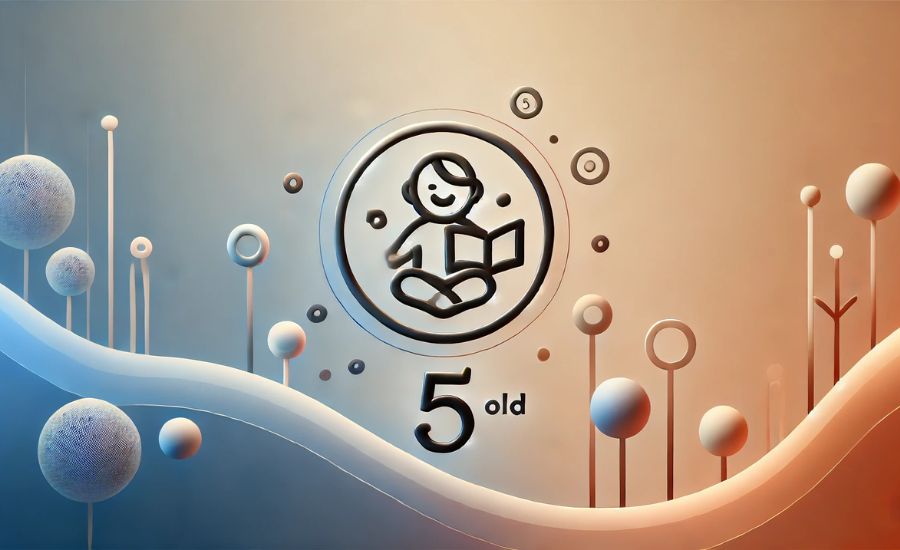
Five-year-olds begin to understand the value of collaboration, demonstrating an ability to work with others toward shared goals. Whether it’s through play, following rules in a game, or participating in group activities, they start to appreciate teamwork. Skills like turn-taking, following instructions, and respecting others’ contributions are essential not only for successful play but also for long-term academic and professional success.
Empathy and Compassion
Empathy starts to blossom during this time. Children at five are increasingly aware that other people have thoughts, feelings, and experiences that differ from their own. They begin to show empathy by comforting a friend or offering to share. This ability to understand and respect different perspectives lays the groundwork for emotional intelligence, which is critical for forming deep, meaningful relationships throughout life.
Language Development: A Leap in Communication
The language skills of a five-year-old become much more sophisticated. Their vocabulary grows rapidly, often adding hundreds of new words in a year, driven by their curiosity and exposure to the world. These language advances allow them to express thoughts, emotions, and ideas with more precision, which in turn improves their ability to socialize and learn.
Expanding Vocabulary
By the age of five, children experience a “vocabulary explosion,” where they rapidly acquire new words and start to use more complex sentences. Their increasing exposure to stories, conversations, and media helps fuel this growth. This not only enhances communication but also strengthens cognitive development, as they begin to express themselves with greater clarity and understanding.
five-year-olds are in a critical phase of development that shapes their social, emotional, and linguistic capabilities. The progress they make in understanding emotions, forming friendships, and expanding their vocabulary during this time sets the stage for future success in both personal and academic endeavors. As they grow, they become more adept at navigating the world around them, displaying resilience and adaptability in the face of new challenges.
Enhancing Social and Physical Skills in Five-Year-Olds
At the age of five, children go through significant social, emotional, and physical development. This period is crucial for shaping their ability to interact with others, manage their own emotions, and explore their independence. Here’s a breakdown of the essential developmental milestones that occur at this age.
Social Skills and Cooperative Play
Five-year-olds start to grasp important social skills, such as sharing and taking turns. This is a developmental leap from earlier years, where children often find it difficult to consider others’ perspectives. Now, they engage in cooperative play, which involves activities like building or team sports, where collaboration and communication are key. Through these interactions, children learn valuable lessons about empathy, conflict resolution, and fairness. Developing these skills lays the foundation for healthier social relationships and better conflict management in later life.
Building Friendships Outside the Family
At this stage, children begin forming their first meaningful friendships beyond family ties. These relationships are essential as they help children practice empathy, communication, and cooperation in real-world social situations. Encouraging group activities and playdates offers children the opportunity to practice these newly acquired social skills. Parents play an important role in guiding them, helping their children navigate social complexities and resolve conflicts, thereby strengthening their ability to form lasting bonds.
Advancing Physical Coordination
Physical development is equally critical for five-year-olds. As their gross motor skills improve, they become more coordinated and confident in activities such as running, jumping, and climbing. These physical activities, often performed during sports or playground play, not only enhance their strength and balance but also boost their self-confidence. Physical activities also improve mental well-being, helping children relieve stress and elevate their mood. Regular active play, therefore, contributes to their holistic growth.
The Curiosity of the “Why” Stage
Five-year-olds are known for their constant curiosity, often referred to as the “why” stage. This phase is marked by an endless stream of questions aimed at understanding the world. While it may be tiring for parents, it is vital for cognitive development. Answering their questions thoughtfully encourages critical thinking and nurtures a love for learning. Whether exploring nature, engaging in simple science experiments, or using educational technology, their curiosity expands their understanding of the world around them.
Gaining Independence and Responsibility
At this age, children begin to assert their independence, wanting to do things “all by myself.” Whether it’s dressing themselves, brushing their teeth, or choosing their own snacks, they take pride in handling tasks independently. Parents can support this growing independence by assigning age-appropriate responsibilities, such as simple chores. Not only do these tasks build self-discipline and organizational skills, but they also foster a sense of responsibility and achievement.
Imaginative Play and Creativity
Imaginative play takes on a whole new level at five, as children engage in role-playing, creating stories, and acting out different scenarios. This kind of play not only strengthens their problem-solving abilities but also fosters social and emotional development. Additionally, many children at this age are drawn to creative arts like drawing, singing, and performing. These activities allow them to express their emotions and explore their artistic side, boosting both fine motor skills and self-confidence.
The Importance of Imagination and Creativity in Five-Year-Olds
Nurturing the imaginations and creativity of five-year-olds is essential for their cognitive and social development. Imagination fosters problem-solving skills, critical thinking, and enhances language development. Creativity allows children to express themselves, build confidence, and refine their social skills. By providing opportunities for imaginative play and creative expression, we help children grow into confident, independent, and lifelong learners.
The Role of Learning and Curiosity
Five-year-olds are naturally curious, eagerly absorbing knowledge and experiences from their surroundings. This innate desire to learn fuels their exploration and understanding of the world, laying a strong foundation for future growth and development.
Their curiosity manifests in constant questioning and experimentation, driving them to discover the “why” and “how” behind everyday phenomena. For example, a child might wonder, “Why do some flowers bloom in different colors?” or “How do trees grow?” This thirst for knowledge propels them to explore, observe, and seek answers.
Supporting Learning Through Exploration
Adults play a crucial role in nurturing the curiosity of five-year-olds. Here are several strategies to support their learning and development:
- Create a Stimulating Environment: Provide a variety of toys, books, and activities that encourage exploration. A playroom filled with blocks, puzzles, art supplies, and science kits can spark curiosity and offer endless learning opportunities.
- Engage in Their Questions: Take the time to answer their inquiries, no matter how simple or repetitive they may seem. Conversations about their observations help deepen their understanding of the world.
- Encourage Experimentation: Allow children to experiment with different materials and tools, even if it results in a bit of mess. Hands-on learning promotes an understanding of cause and effect and develops problem-solving skills.
- Read Together: Reading exposes children to new vocabulary, concepts, and ideas, fostering a love of learning that is crucial for their academic success.
Fostering Independence and Self-Reliance
Five-year-olds are on the verge of a significant developmental milestone marked by a growing sense of independence and self-reliance. As they explore their environment, they begin to assert their needs and preferences, taking on more responsibility for themselves and their belongings. This burgeoning independence is vital for cultivating confident and capable individuals.
How Five-Year-Olds Develop Independence
This stage of development features a desire for autonomy and the ability to make independent choices. Here are some ways five-year-olds develop independence and self-reliance:
- Mastering Self-Care Skills: Children start to manage basic self-care tasks such as dressing themselves and brushing their teeth. These abilities foster a sense of accomplishment and empower them to attend to their own needs.
- Following Simple Instructions: At this age, children can understand and follow basic instructions, which allows them to contribute to household routines and chores. This participation nurtures a sense of responsibility.
- Making Choices: Five-year-olds begin making simple choices, such as selecting their clothes or deciding what to eat for lunch. This autonomy encourages them to think for themselves and reinforces their sense of control over their lives.
- Developing Problem-Solving Skills: Children start to solve simple problems independently, enhancing their confidence and ability to rely on their own skills.
Taking on Responsibility
As five-year-olds become more independent, they can also assume greater responsibility for themselves and their belongings. This responsibility may include:
- Tidying Up: They begin to grasp the importance of keeping their spaces organized, which teaches responsibility and fosters good habits.
- Caring for Pets: If they have pets, they may assist in their care by feeding them or helping with basic tasks, promoting nurturing behavior.
- Helping Around the House: Children can participate in simple household tasks like setting the table or assisting with laundry, which reinforces a sense of teamwork within the family.
Encouraging Independence and Self-Reliance
Parents and educators play a vital role in fostering independence and self-reliance in five-year-olds. Here are some effective strategies:
- Provide Opportunities for Practice: Encourage children to try new things and practice their self-care skills, such as dressing themselves or packing their lunches.
- Set Clear Expectations: Establish clear guidelines for behavior and responsibilities, helping children understand what is expected of them and fostering accountability.
- Offer Choices: Whenever possible, give children choices, such as selecting their clothes or snacks. This empowers them to make decisions and nurtures a sense of control.
- Praise Efforts and Achievements: Recognize and celebrate their efforts and successes, no matter how small. This acknowledgment reinforces their sense of accomplishment and motivates them to continue striving for independence.
Prelude to Discovery: Understanding Childhood Milestones
The year 2020 was unprecedented, marked by significant global changes and personal transformations. Within this context, five-year-olds continued to reach impressive developmental milestones, often overlooked in the broader narrative of that year. This exploration of the most remarkable accomplishments of five-year-olds in 2020 sheds light on their resilience and highlights the intricate relationship between genetics, environment, and education in shaping their growth.
Building Blocks of Growth: Essential Skills Developed by Five-Year-Olds
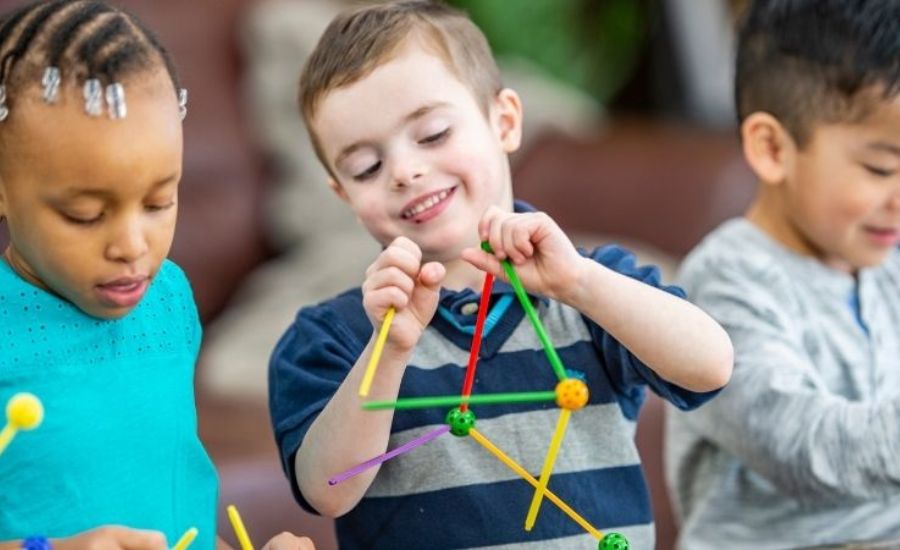
At the age of five, children achieve critical milestones that lay the groundwork for their lifelong learning journey. Their vocabulary expands significantly, allowing them to express complex ideas and thoughts with increasing clarity. Numeracy skills also emerge prominently, as children begin to understand basic mathematical concepts such as counting, addition, and subtraction. These foundational skills are vital for their future academic success and overall cognitive development.
Key Milestones in Development
- Language Development: Five-year-olds often showcase impressive vocabulary growth. They can form complex sentences and engage in conversations that reflect their growing understanding of language. This ability enhances their communication skills and lays the foundation for literacy.
- Cognitive Skills: As children explore their environment, they develop critical thinking and problem-solving abilities. Their natural curiosity drives them to ask questions, seek answers, and make connections, fostering cognitive growth that is essential for future learning.
- Social Skills: At this age, children begin to form friendships and understand social dynamics. They learn the importance of cooperation, sharing, and empathy, which are crucial for building healthy relationships with peers.
- Emotional Development: Five-year-olds experience a range of emotions and begin to understand their feelings and those of others. This emotional awareness contributes to their resilience and ability to navigate social situations.
- Motor Skills: Physical development is evident as children refine their fine and gross motor skills. They engage in activities that improve coordination and dexterity, such as drawing, cutting with scissors, and participating in sports.
- Independence: As they grow, five-year-olds seek greater independence. They take on more responsibilities, such as dressing themselves, making simple choices, and helping with household tasks. This independence fosters self-confidence and a sense of agency.
- Imaginative Play: Imagination flourishes during this stage. Five-year-olds engage in creative play, often creating elaborate scenarios and stories. This imaginative exploration is crucial for cognitive and social development, allowing them to experiment with different roles and perspectives.
- Curiosity and Exploration: Children at this age have an insatiable curiosity about the world around them. They eagerly explore their environment, leading to discoveries that enhance their understanding of concepts and ideas.
- Moral Understanding: Five-year-olds begin to grasp concepts of right and wrong. They develop a sense of fairness and justice, often expressing concern for others and understanding the impact of their actions.
For more Information About Education visit risingperson
